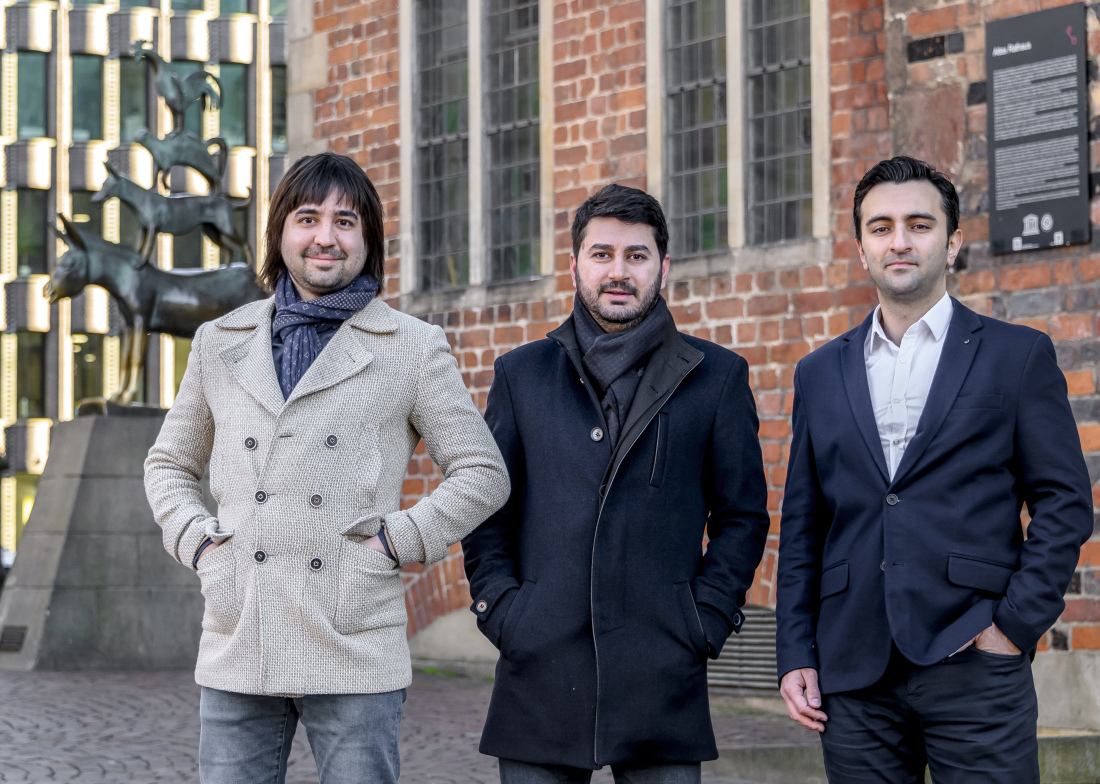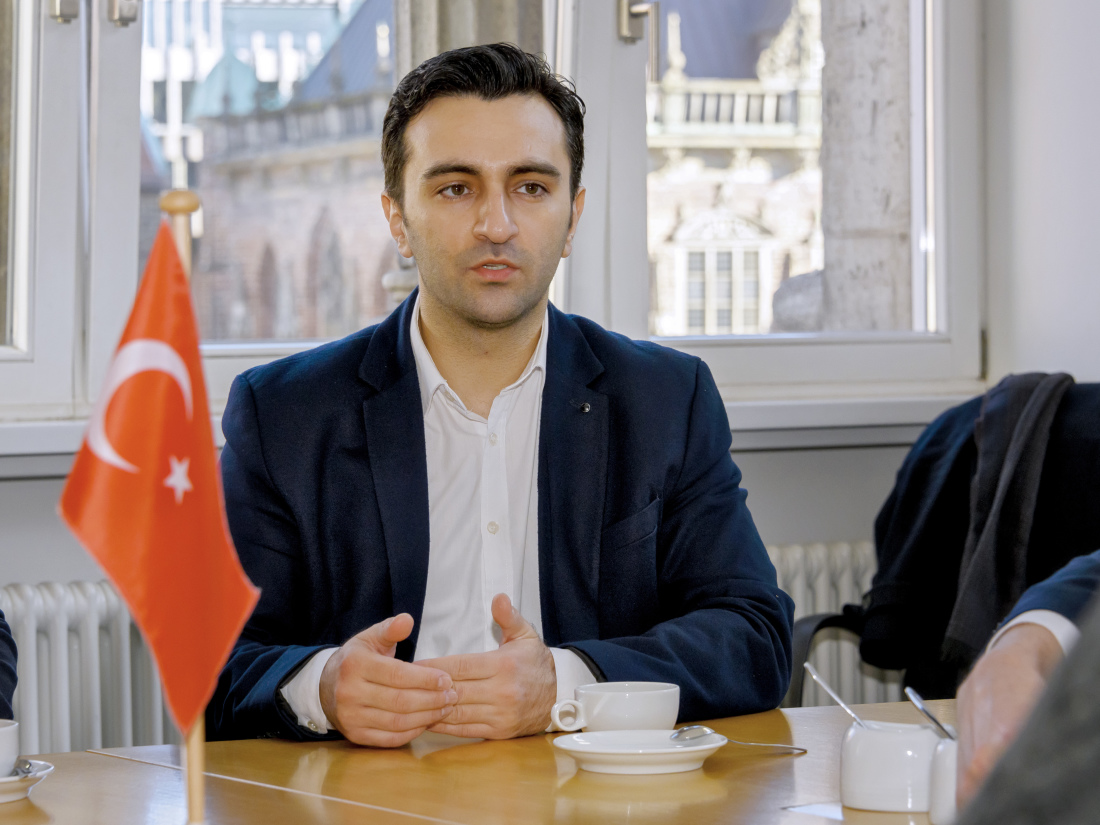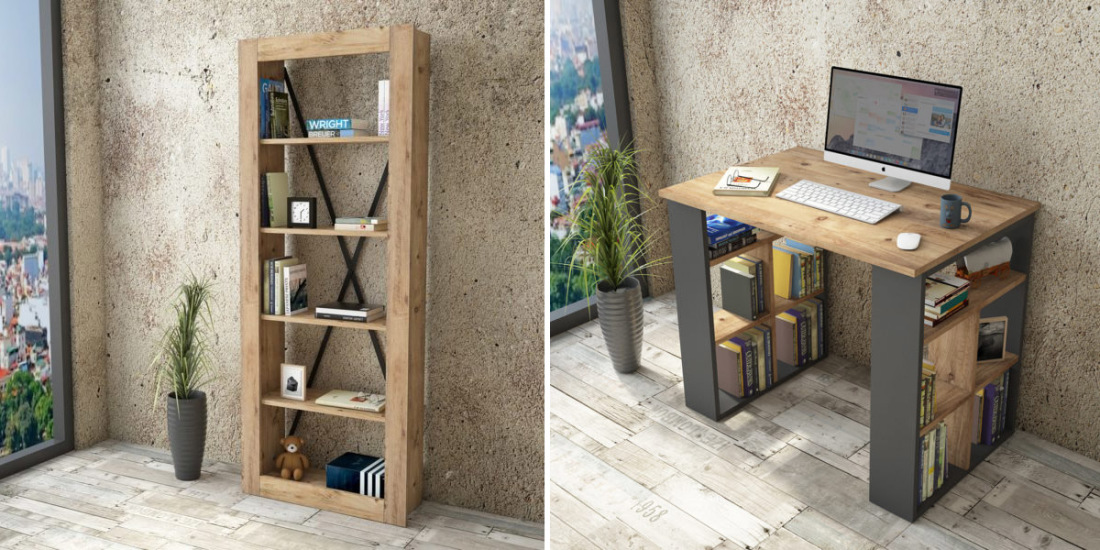The boss who moved to Bremen
RetailYurudesign wants to conquer the European furniture market – from Bremen.

It is winter in Bremen. The sky is grey, the trees are bare, the weather is cold – certainly for someone from the sea port of Izmir in Turkey, where current temperatures are between 15 and 20°C.
Nevertheless, Cagri Yilmaz is determined to go for a walk in Bremen’s Bürgerpark. “I’m looking forward to summer when everything around here is as green as the photos I’ve seen on the internet,” says Yilmaz, one of the founders of Yurudesign.
Yilmaz has been living in Bremen since the end of 2019. He loves the local atmosphere. “Bremen is quiet and peaceful compared to major Turkish cities like Istanbul or Izmir. The people here are very helpful and friendly.”
Tables, shelves, wardrobes – one online shop ready to go
Yilmaz is one of three executive directors of Turkish furniture company Yurudesign. In 2014, when they were all in their mid-thirties, the three got together to shake up the furniture industry. They all knew each other as friends, and each of them had some useful expertise. One was familiar with production processes, another knew the furniture sector and the third one had logistics experience.
It led to the creation of Yurudesign – furniture with a fresh, contemporary design. Living room cabinets in oak or pine, shelves with an industrial look and elegant white wardrobes for bedrooms. The business is run entirely online, via their own website or through sales platforms like Amazon or eBay.
Strong start, stronger follow-up
The website and the attractive design of the furniture proved instantly popular with Turkish customers. Today, the company employs 60 staff, and it produces all of its furniture in a 7,000 square metre factory in Izmir. It has its own design, marketing and logistics teams.
In 2019, the company decided to expand into Europe. “We can see great opportunities here. But we realised that if we did go to Europe, we needed to establish a local presence,” explains Yilmaz. The three entrepreneurs don’t do things by halves. “You cannot control that sort of business from Turkey. We need someone on the ground to manage the processes and ensure high quality. It’s the sort of thing you’ve got to do yourself and that’s why I decided to come to Germany,” says the logistics expert.
It quickly became clear they were going to pick Germany. The German market is attractive and the country has a high level of logistics expertise. After some research the three came across the partnership between the cities of Bremen and Izmir and got in touch with the Turkish office of Bremeninvest, the international brand of Bremen’s economic development agency.
“The teams in Izmir and here in Bremen helped us a lot when we were setting up our business, in dealing with local authorities and with regard to residence permits,” says Yilmaz. He has nothing but praise for the support provided by Bremeninvest and by authorities and institutions such as the chamber of commerce. Bremeninvest also helped them to find and rent logistics premises that are going to be used as an interim warehouse and for shipping.

Doing business across continents
Another thing the Bremeninvest team were able to lend a hand with was flat hunting. They found Yilmaz an apartment in the Steintor district. The landlady has already grown very fond of the cheery businessman. “She is always asking if I’ve got everything I need.” In English of course, as Yilmaz has only just started to learn German.
At the moment he is living in Bremen on his own, but that is going to change. His wife and child will be joining him in northern Germany, at which point they will be moving to a larger apartment. His two colleagues haven’t abandoned him either. They make regular trips to Bremen to take important business decisions together, such as renting a warehouse. “And of course we keep in touch every day – that is essential to us,” he stresses.
Using Bremen as a launchpad
The first container loads of merchandise have already arrived in Bremerhaven. Initially the three directors plan to test the market with small quantities, but over the course of the year they intend to ramp up the volume. They are aiming to shift up to 1,000 items a month.
And they have other plans for Bremen too. They can imagine one day having a showroom here, or even setting up their own production facilities – if things go well. One thing that exists already is a line of furniture called ‘Bremen’: living room shelves with a minimalist Nordic design.

Online furniture is a growth market
To ensure its success in Europe, the company has already carried out extensive market research. Tastes vary considerably between Germany, France and Turkey. “In Germany they like wood veneer – such as oak – while the French prefer white surfaces,” explains Yilmaz.
The company certainly has a good nose for a business opportunity. In Germany, online furniture sales to consumers have been growing for years and are set to increase from about €6.6 billion in 2018 to €9.3 billion in 2022 (source). They currently account for around 10 per cent of the total market.
The three entrepreneurs are certain that Yurudesign will succeed in Europe. And also that Yilmaz will be making Bremen his new home. After all, he has already acquired a bike and cycles all over the city – which pretty much makes him a citizen of Bremen.
Success Stories
Into the flowerbed instead of the trash: the products from Bremen-based Scribbling Seeds turn discarded office and advertising materials into tomatoes, basil or sunflowers. Founder Anushree Jain is certain that this is the way to a more sustainable office.
Learn moreOnce a year, renowned analysts collect information for the Real Estate Market Report. This is a review of the past year, combined with forecasts based on the market data available within the first six months. The 2023 report shows stable results despite the current difficult market conditions.
Learn moreTailor-made support to successfully bring your own idea to the market - or into space? That's possible in Bremen with the ESA BIC Northern Germany incubation programme. Start-ups from a wide range of sectors can apply. Inge Heydt from the Starthaus explains for whom the incubator is suitable and what is behind it.
Read the Interview
